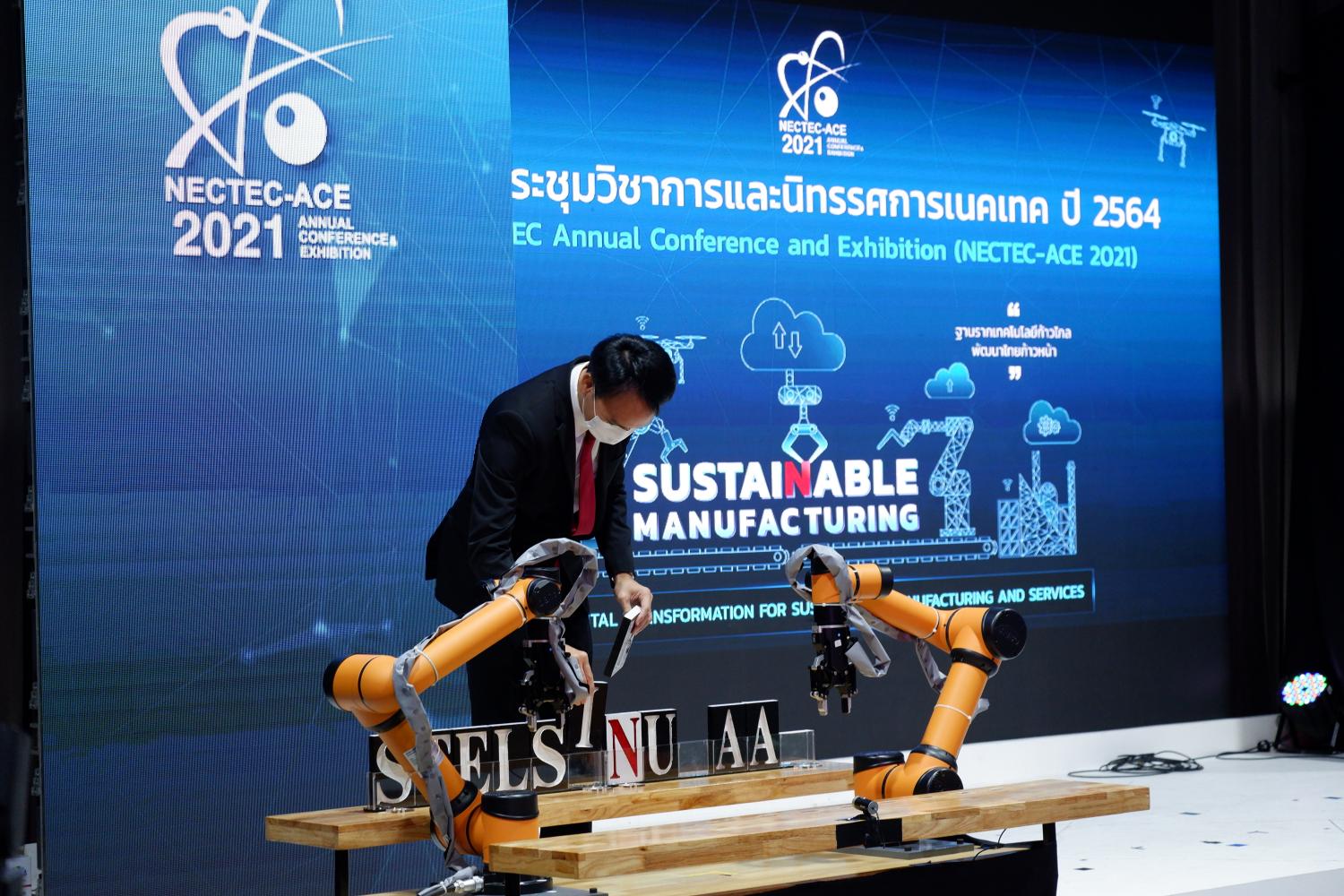
The National Electronics and Computer Technology Center (Nectec) is teaming up with the Federation of Thai Industries (FTI) to ensure at least 20% of the country's factories reach Industry 4.0 standards by 2024, from the current level of only 5-6%.
"The manufacturing sector has faced challenges in levelling up productivity while higher labour costs have encouraged many factories to relocate to other countries with lower labour costs," said Chai Wutiwiwatchai, executive director of Nectec.
He was delivering remarks at Nectec's annual conference and exhibition on Monday under the theme of "Digital Transformation for Sustainable Manufacturing and Services".
According to him, the pandemic is pushing industrial players to accelerate their digital transformation to stay competitive.
Nectec has gathered 98 researchers in the fields of Internet of Things (IoT), artificial intelligence (AI), electronics, and mechanics that are able to support factories to embark on Industry 4.0 by embracing digital capabilities in the production process, Mr Chai said.
In 2021, Nectec established the Sustainable Manufacturing Centre (SMC) in the Eastern Economic Corridor of Innovation in Rayong's Wang Chan district, which serves as a research and development facility that will usher in technologies to respond to factories' demand, helping tackle their pain points and boosting their competitiveness.
SMC is seen as able to unlock the move towards Industry 4.0 with five services: assessment of factories' Industry 4.0 readiness, skills development, consultation, basic industrial platforms, and a testbed.
Nectec, Mr Chai said, wants to help factories level up their status at least one level, such as from Industry 3.0 to Industry 4.0.
"We also need to prepare for Industry 5.0 where humans will work alongside robots, making sure humans will not be left behind," said Mr Chai.
Pasit Lorterapong, deputy permanent secretary at the Ministry of Higher Education, Science, Research and Innovation, pointed out that digital adoption could help level up operators' competitiveness with cost reductions of 10-40% and revenue increases of 10-20%
The manufacturing sector accounts for one-third of the country's GDP and contributes 80% of overall exports, he added.
Supant Mongkolsuthree, chairman of the FTI, said that only 5-6% of the country's factories have achieved Industry 4.0, and his organisation wants to have at least 20% of them reach that level within three years.
To achieve that goal, small and medium-sized enterprises need to be financially supported to invest in tech while their workforces must be subject to upskills and reskills, he said.
Digital technology is playing a key role in changing manufacturing processes, which would help boost productivity and lower costs, Mr Supant noted.
5G, IoT, cloud, big data, cybersecurity, blockchain, automation, AI as well as augmented and virtual reality will become key trends in the manufacturing industry in the coming years, he stressed.
Global installation of industrial robots is expected to rise 14% per year on average until 2024.
In 2021, 435,000 industrial robots are expected to be installed worldwide and the number is projected to hit 518,000 in 2024, Mr Supant added.